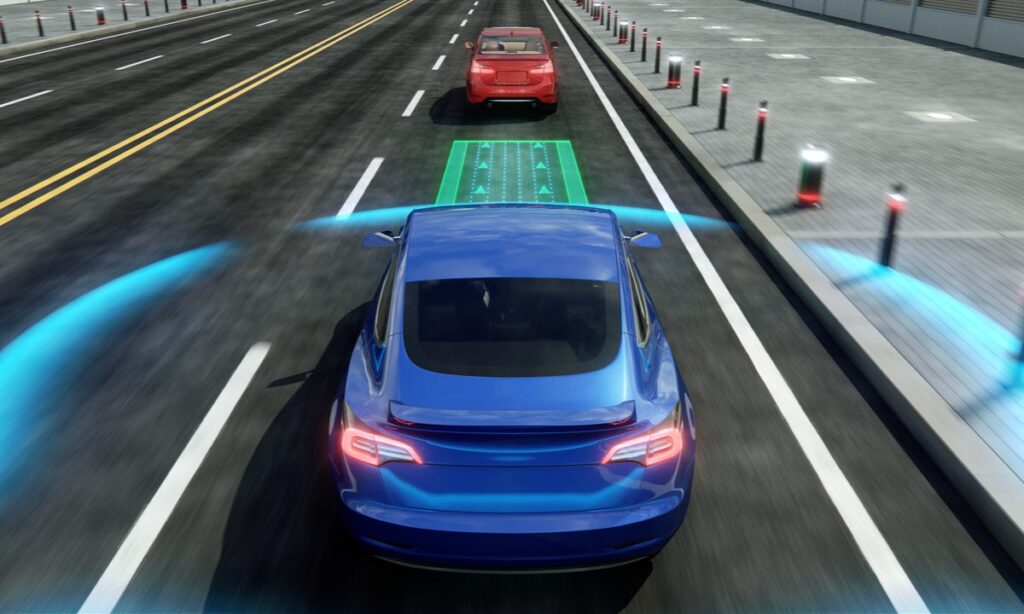Self-driving cars have been a vision of the future ever since the Industrial Revolution first brought machines to our attention.
There’s also news that the autonomous delivery robot market is benefiting from artificial intelligence (AI), leading observers to wonder when self-driving cars will become an augmented reality.
After all, it was only this week that Alphabet announced during its quarterly and earnings call that it would invest an additional $5 billion in Waymo, its self-driving business that first launched as Google’s own self-driving car project more than 15 years ago, and which has yet to turn a profit.
Meanwhile, General Motors said on Tuesday (July 23) that it was “indefinitely pausing” work on Origin, the name of a self-driving car made by GM’s self-driving subsidiary Cruise. Cruise’s driverless taxi product has resumed testing in Dallas, Houston and Phoenix, the company said in an earnings call on Tuesday, but noted that the service is still in testing and not open to customers.
“Our vision remains the same: to transform mobility with autonomous driving technology. And because Cruise is an AI-first company, every mile and every simulation brings us closer to that vision,” GM CEO Mary Barra said in a recent shareholder letter.
Electric vehicle maker Tesla, the company best known for its self-driving cars, or at least the promise of them, is postponing its robotaxi unveiling, scheduled for August 8, until October. CEO Elon Musk predicted in 2019 that Tesla would launch a robotaxi by 2020.
“Tesla’s value is, by far, self-driving,” Musk said during the company’s earnings call on Tuesday. “Everything else is just noise compared to self-driving.”
Read more: Unlocking the potential of autonomous driving, from factories to highways
Connected Supply Chain and Digital Economy Transformation
Autonomous vehicles (AVs) encompass a broad range of technologies that enable vehicles to operate without human intervention. The category includes self-driving cars, trucks, drones, and other robotic delivery systems. AV development is driven by advances in artificial intelligence, machine learning, sensors, and connectivity, with established companies and startups alike leading the way.
One such startup, Kodiak, announced plans Tuesday to launch a fully driverless commercial trucking service in partnership with sand and oilfield logistics provider Atlas Energy Solutions.
“The Permian Basin’s vast network of privately leased roads across the Delaware and Midland Basins provides an ideal environment for the introduction of autonomous trucks in North America,” Atlas Chief Supply Chain Officer Chris Sciola said in a statement.
“Our partnership with Atlas to introduce driverless trucks marks the beginning of a new era of autonomous vehicles,” added Kodiak founder and CEO Don Barnett. “By partnering with Atlas, we become the first autonomous semi-truck company to establish a commercial driverless operation and the first to make autonomous trucking a real business. We look forward to expanding our trucking offerings not only in the Permian Basin but also over the long haul.”
Meanwhile, Toyota-backed startup May Mobility announced last week (July 16) that more than 10,000 passengers have used its goMARTI autonomous vehicle service in Grand Rapids, Minnesota, since its launch in September 2022.
“I believe that in our lifetime, not just cars but every moving machine on the planet will be automated, and the smart infrastructure that monitors and supports it will be automated as well,” May Mobility CFO Anna Brunell said in PYMNTS’ “A Day in the Life of the CFO” series in February.
Read more: Musk’s xAI plans highlight Tesla’s self-driving challenges
The ongoing challenge of unlocking the potential of autonomy
While the potential benefits of autonomous vehicles are great, their widespread adoption comes with challenges, including regulatory hurdles, cybersecurity risks, and potential job losses in sectors like trucking and logistics. Ensuring the safety and reliability of AVs is paramount, especially in mixed traffic environments where human drivers and autonomous vehicles must coexist.
As PYMNTS previously reported, the U.S. Department of Justice (DOJ) is investigating Tesla’s Autopilot and Full Self-Driving (FSD) systems after crashes continue to occur despite the company recalling more than 2 million vehicles in December.
“Managing the environment is becoming more and more complex, which is where more advanced technology comes in and where you need data,” Tal Chrysler, CEO and co-founder of NoTraffic, said about connected and autonomous systems at PYMNTS in April.
Read more about: Alphabet, Atlas Energy Solutions, Automotive, Autonomous Vehicles, General Motors, GM, Google, Kodiak, May Mobility, News, PYMNTS News, Self-Driving Cars, Startups, Technology, Tesla, Waymo
Source link

